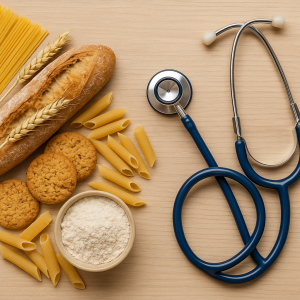 Milk is a staple in many diets around the world, and for good reason. Not only is it a delicious and versatile food, but it also provides a wide range of health benefits.
Milk is a staple in many diets around the world, and for good reason. Not only is it a delicious and versatile food, but it also provides a wide range of health benefits.
Health benefits of milk
One of the most well-known benefits of milk is its high calcium content. Calcium is essential for strong bones and teeth, and a lack of calcium can lead to conditions such as osteoporosis. Milk is one of the best dietary sources of calcium, and drinking it regularly can help ensure that you are getting enough of this important mineral.
In addition to calcium, milk also contains a variety of other nutrients that are essential for good health. For example, it is a good source of protein, which is necessary for building and repairing tissues. It also contains vitamins A, D, and B12, as well as minerals such as phosphorus and potassium.
Article continued below
Milk is also a good source of probiotics, which are beneficial bacteria that improve digestion and boost the immune system. These probiotics are found in fermented milk products such as yogurt and kefir.
Another benefit of milk is that it helps with weight management. Studies have shown that people who consume a moderate amount of dairy products, such as milk, have a lower risk of becoming overweight or obese. This is likely due to the fact that milk is a good source of protein and calcium, which can help keep you feeling full and satisfied.
While milk and dairy products offer a wide range of health benefits, they may not be suitable for everyone. People who are lactose intolerant or have a cow’s milk allergy should avoid consuming milk and opt for lactose-free or plant-based alternatives.
How much milk per day?
The recommended daily intake of milk varies depending on a person’s age, gender, and level of physical activity. According to the United States Department of Agriculture (USDA), adults should aim for 3 cups of dairy products per day, which includes milk, yogurt, and cheese.
For children, the recommended intake is also based on age. Children aged 2 to 3 years should consume 2 cups of dairy per day, while children aged 4 to 8 years should consume 2.5 cups per day. Adolescents aged 9 to 18 years should consume 3 cups per day.
The recommended intake of dairy products can be met through a combination of different dairy products and not only milk. For example, 1 cup of milk is roughly equivalent to 1 cup of yogurt or 1.5 ounces of cheese.
It’s also important to know that not everyone needs or should consume the same amount of dairy. People who are lactose intolerant or have a cow’s milk allergy should avoid consuming milk and opt for lactose-free or plant-based alternatives. People with certain medical conditions such as osteoporosis may need to consume more calcium, and thus more milk and dairy products. It is always best to consult with a healthcare professional to determine the appropriate amount of dairy for an individual’s specific needs.
Does milk contain harmful hormones?
Hormones are naturally occurring substances in the body that help regulate various functions such as growth, metabolism, and reproductive processes. Some hormones are also used in the production of milk. The most commonly used hormones in milk production are recombinant bovine somatotropin (rBST) and recombinant bovine growth hormone (rBGH).
rBST and rBGH are genetically engineered hormones that are given to cows to increase their milk production. Some concerns have been raised about the potential health effects of consuming milk from cows that have been treated with these hormones. However, the majority of scientific studies have found that milk from cows treated with rBST or rBGH is safe to consume and is not harmful to human health.
The Food and Drug Administration (FDA) has determined that milk from cows treated with rBST or rBGH is safe to drink, and that there is no significant difference between milk from treated and untreated cows. This is in line with the position of World Health Organization (WHO), the European Food Safety Authority (EFSA) and the Codex Alimentarius Commission (CAC), the Joint FAO/WHO food standards body, that milk from cows treated with rBST or rBGH is safe to consume.
Some milk and dairy products are labeled as “rBST-free” or “rBGH-free” which means they are from cows that have not been treated with these hormones. The choice to consume these products is a personal preference.






